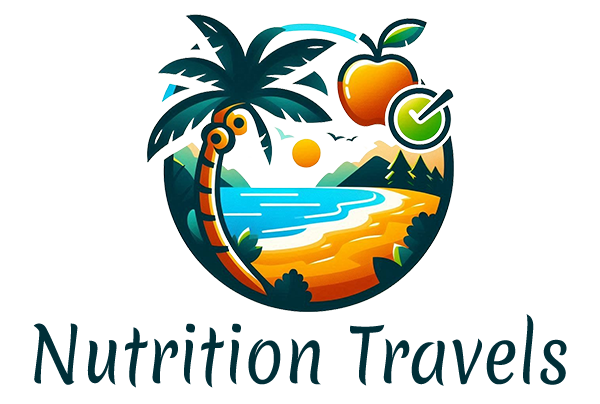What a mother eats during pregnancy doesn’t just affect her own health — it directly shapes the growth and future well-being of her baby. This remarkable journey brings physical, emotional, and hormonal changes, and nutrition stands at the heart of it all. Proper dietary choices during pregnancy support the mother’s strength, reduce the risk of complications, and play a vital role in the development of the fetus’s organs and brain. In fact, many experts agree: lifelong health begins in the womb. That’s why understanding what to eat — and what to avoid — is one of the smartest steps an expecting mother can take. Learning the basics of Pregnancy Nutrition empowers women to make informed, confident decisions every day.
1. Why Is Proper Nutrition During Pregnancy So Important?
During pregnancy, the baby relies entirely on the mother for essential nutrients — including proteins, carbohydrates, healthy fats, vitamins, and minerals — all of which are supplied through her daily diet. If these nutrients are lacking, it can hinder the proper development of the baby’s vital organs like the brain, heart, and bones.
Moreover, a well-balanced diet significantly reduces the risk of complications such as premature birth, preeclampsia, anemia, and gestational diabetes. It protects both the mother’s health and the baby’s future, making nutrition a cornerstone of a safe and healthy pregnancy.

2. Essential Nutrients During Pregnancy
Getting the right nutrients during pregnancy is key to supporting the baby’s development and maintaining the mother’s health. Here are the most important ones to focus on:
-
Folic Acid
Critical for preventing neural tube defects such as spina bifida. It’s recommended to start taking folic acid at least one month before conception and continue through the first trimester.
- Recommended dose: 400–800 mcg daily
- Sources: Leafy greens, fortified cereals, legumes, oranges
-
Iron
Needed to support increased blood volume and to build the baby’s iron stores. A deficiency can cause anemia and raise the risk of premature birth or low birth weight.
- Sources: Red meat, liver, spinach, lentils, fortified cereals
- Tip: Pair with vitamin C-rich foods (like orange juice) to boost absorption
-
Calcium
Essential for developing strong bones and teeth in the fetus. It also protects the mother’s bone density.
- Sources: Milk, yogurt, cheese, sardines, broccoli
-
Omega-3 Fatty Acids
Important for brain development, vision, and the nervous system. May help lower the risk of postpartum depression.
- Sources: Fatty fish (salmon, tuna), flaxseeds, walnuts
-
Proteins
The foundation for building the baby’s tissues, muscles, and organs.
- Sources: Meat, eggs, milk, legumes, tofu
-
Zinc
Supports DNA synthesis, cell growth, and immune function.
- Sources: Meat, nuts, whole grains
-
Water
Staying hydrated (8–10 cups per day) helps maintain amniotic fluid, aids digestion, and supports nutrient circulation.

3. Sample Daily Meal Plan for Pregnant Women
Maintaining a balanced diet during pregnancy doesn’t have to be complicated. Here’s a simple daily meal plan that provides key nutrients throughout the day:
Breakfast:
- 1 cup low-fat milk
- 2 slices of whole wheat bread
- 1 boiled egg or a slice of cheese
- 1 piece of fruit (like banana or apple)
Morning Snack:
- A handful of almonds or walnuts
- 1 cup of fresh juice rich in vitamin C (e.g., orange or guava)
Lunch:
- Grilled chicken or fish
- Brown rice or baked potatoes
- A large bowl of fresh green salad with olive oil and lemon
- 1 cup of yogurt
Afternoon Snack:
- A cup of milk or laban
- A few dates or dried fruit like apricots or raisins
Dinner:
- Lentil or vegetable soup
- A boiled egg or slice of cheese
- 2 slices of whole wheat bread
Before Bed:
- A warm cup of milk with cinnamon or a teaspoon of honey (optional)

4. Foods to Avoid During Pregnancy
To ensure the safety of both mother and baby, certain foods and drinks should be avoided during pregnancy due to the risk of infection or harm to fetal development:
- Raw or undercooked meat – May contain harmful bacteria or parasites such as Listeria or Toxoplasma, which can lead to serious infections.
- High-mercury fish – Fish like shark, swordfish, king mackerel, and tilefish contain high levels of mercury that may affect the baby’s developing nervous system.
- Raw or undercooked eggs – Can pose a risk of Salmonella infection. Always cook eggs thoroughly.
- Unpasteurized soft cheeses – Avoid cheeses like feta, Brie, Camembert, and Roquefort unless they are clearly labeled as pasteurized.
- Excess caffeine – Limit caffeine intake to less than 200 mg per day (about one 12 oz cup of coffee), as too much may increase the risk of miscarriage or low birth weight.
- Alcohol – Strictly avoid alcohol, as it can cause serious birth defects and developmental disorders (Fetal Alcohol Spectrum Disorders).
5. Healthy Weight Gain During Pregnancy
Gaining weight during pregnancy is not only normal — it’s essential for the baby’s growth and the mother’s health. However, gaining too much or too little can increase the risk of complications, so it’s important to aim for healthy weight gain based on your pre-pregnancy weight:
- Normal weight before pregnancy: Aim to gain between 11–16 kg (24–35 lbs).
- Underweight before pregnancy: You may need to gain more than 16 kg, depending on your doctor’s recommendation.
- Overweight before pregnancy: Recommended weight gain is around 7–11 kg (15–25 lbs) to reduce the risk of gestational diabetes, hypertension, and delivery complications.
Tip: Gaining weight gradually — not all at once — is key. Most of the weight should be gained during the second and third trimesters. Always discuss your personal target with your healthcare provider.

6. Common Nutrition-Related Issues During Pregnancy
Navigating Pregnancy Nutrition isn’t always smooth — many women experience digestive or appetite-related challenges. Here are the most common ones and how to manage them through simple dietary adjustments:
-
Nausea and Vomiting (Especially in the First Trimester)
- Eat small, frequent meals instead of large ones.
- Avoid strong odors and greasy or spicy foods.
- Try nibbling on dry crackers or a piece of toast before getting out of bed.
- Ginger tea or ginger candies may help reduce nausea.
-
Heartburn
- Avoid spicy, fatty, or acidic foods (like citrus and tomato sauce).
- Eat slowly and don’t lie down right after meals.
- Use extra pillows to keep your head slightly elevated while sleeping.
- Choose smaller, more frequent meals.
-
Constipation
- Increase fiber intake by eating more fruits, vegetables, whole grains, and legumes.
- Stay well-hydrated — drink at least 8 cups of water a day.
- Include light physical activity such as walking or prenatal yoga to stimulate digestion.
Tip: If symptoms persist or become severe, consult your healthcare provider. Never self-medicate during pregnancy.
7. Pregnancy Supplements
Although a healthy, balanced diet should provide most of the nutrients a pregnant woman needs, some vitamins and minerals may require supplementation — especially if blood tests indicate a deficiency. However, supplements should only be taken under medical supervision.
Common supplements during pregnancy include:
Folic Acid:
Usually started before conception to prevent neural tube defects.
Iron:
Needed to prevent anemia, especially in the second and third trimesters.
Vitamin D:
Supports bone health and immune function; often recommended in regions with low sun exposure.
Calcium:
Helps maintain strong bones and supports fetal skeletal development.
Note: Multivitamins designed specifically for pregnancy often contain safe, balanced doses of key nutrients. Always follow your doctor’s guidance on what and how much to take.
8. General Tips for Healthy Eating During Pregnancy
Healthy eating during pregnancy isn’t just about individual nutrients — it’s about overall lifestyle and consistent, mindful choices. Here are some general guidelines:
Focus on variety:
Include a mix of proteins, whole grains, fruits, vegetables, and healthy fats. Avoid eating the same foods every day to ensure a full nutrient profile.
Quality over quantity:
You’re not “eating for two” — you just need slightly more calories, especially in the second and third trimesters. Prioritize nutrient-dense foods instead of extra portions.
Stay connected with your healthcare provider:
Regular checkups help monitor your weight, nutritional needs, and baby’s growth. Adjust your diet based on medical advice and test results.
Include safe physical activity:
After getting approval from your doctor, aim for light exercises like walking, prenatal yoga, or stretching to support digestion, mood, and circulation.
Tip: Listen to your body — hunger, cravings, and fatigue are natural, but always aim to respond with healthy, balanced choices.
Making informed food choices during pregnancy is one of the most impactful ways a mother can support her baby’s future. Every bite filled with nutrients helps build a strong body, a sharp mind, and a resilient immune system for the child. Nourishing yourself is not just self-care — it’s a gift to the next generation.
If you’d like to explore more expert-backed nutrition tips for pregnancy and beyond, visit our website Nutrition Travels — your reliable source for healthy living, tailored to mothers and families. Because your baby’s health starts with you — and it starts now.





